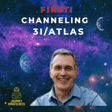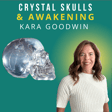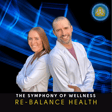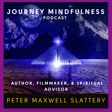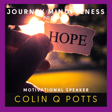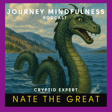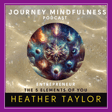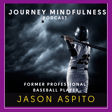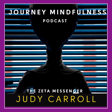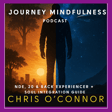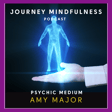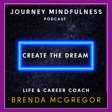Introduction to Dr. Josh Funk and Rehab2Perform
00:00:13
Speaker
Today on the Journey Mindfulness Podcast, I'm honored to welcome Dr. Josh Funk, founder and CEO of Rehab2Perform and a true leader at the intersection of physical performance, rehabilitation, and personal development.
00:00:27
Speaker
Dr. Funk brings a wealth of experience as a former Division I athlete and a professional athlete too. a doctor of physical therapy, and an innovative entrepreneur who's reimagining what it means to recover, perform, and thrive, not just for elite athletes, but for everyday individuals striving to live healthier, more empowered lives.
Journey from Athletics to Rehabilitation
00:00:47
Speaker
In this conversation, we'll explore his journey from the field to the clinic and the mindset behind sustainable performance and how movement, resilience, and intentional living are deeply interconnected.
00:00:59
Speaker
Josh's grounded wisdom and practical insights are a reminder that high performance isn't just about the body. It's about showing up fully for life. Josh, welcome to the show. It's great to have you here.
00:01:10
Speaker
Man, you killed that introduction. I feel i felt really good about myself this morning now. um Thanks for making time for me. I'm happy to be here and share you know what I can with your audience.
00:01:22
Speaker
Yeah, no, I mean, you you should be, made you you're doing a lot of great stuff. I mean, I've only recently come come across some of your work, but it's it's innovative and it's inspiring. But what inspired you to start Rehab to Perform?
College Injury and Inspiration Behind Rehab2Perform
00:01:39
Speaker
I grew up a multi-sport household, um played just about everything and anything, nine different sports before I got to high school. I have four other siblings.
00:01:50
Speaker
They all played a ton of different activities. So our identity early on was largely rooted in being a student athlete. um The academic part aside, um sport participation, performing at high levels, that was just what we did. The high school did this into college. I was fortunate to avoid the injury bug.
00:02:15
Speaker
And it was not until sophomore year of college where I had my first serious injury, um a diagnosis of a torn labrum, torn rotator cuff. And this the physician at school told me that I probably will need surgery at the end of the season.
00:02:29
Speaker
And that was tough for me to kind of wrap my head around, um knowing that surgery typically left you unable to do things for a certain stretch of time. So me sitting there kind of going, hey, all right, well, if I'm have to get surgery at the end of the season, like,
00:02:43
Speaker
Can I see what I can do and just play the season? And if it goes poorly, I'll get s surgery sooner. And they were like, sure. So I rehabbed while I was at Ohio State. And what I found through the process was not only did my shoulder get better as a result of the coordination of care, the way that they took um took care of me, the way that they commuted amongst communicated amongst each other.
00:03:09
Speaker
The facilities, the environment, I stayed connected to aspects of practice. I was able to modify instead of rest. There wasn't this disconnect. um
Motivation and Practices at Ohio State University
00:03:20
Speaker
And at the end of the season, I kind of went, wow, I and in a situation where I don't think I need surgery. And I really, really enjoyed this journey.
00:03:31
Speaker
Physician said, okay, we're not doing surgery. Why don't you go home this summer and actually give your shoulder a break? You're not gonna be playing lacrosse. You're just gonna just be working out and rehabbing. I came home and the experience ah was night and day.
00:03:46
Speaker
I mean, there could not have been a greater contrast between what I experienced at a big athletics environment versus community ah sports medicine experience. It was very underwhelming and I became a statistic.
00:03:59
Speaker
Much like you have hospital discharges, you have self-discharges in an outpatient setting, and that contributes to churn rate, which you know is kind of an industry agnostic no-no. We don't want a high churn rate. But I do a statistic at a PT place, and that was where I quickly realized that, hey, a if I liked doing this thing called physical therapy, I might want to do my own thing, combine some of my entrepreneurial pursuits that I had had previously with ah this idea. And in 2014, about, gosh, six years after college finished, it finally became something that became a reality.
00:04:40
Speaker
So wait, when did the idea pop into your head? i It was it was that moment. I was like, I'm going to be a PT and I'm going to start my own business and bring something back to the community that I grew up in that was more like I had experienced at Ohio State.
00:04:53
Speaker
um You know, ah why should a big time sports medicine environment be reserved for just higher level athletes? Why can't that come to the DMV and in particular, you know, Montgomery County or Frederick County?
00:05:06
Speaker
Yeah. No, it's it's really interesting. One of the things that I kind of picked up on when you were talking about that is you they you weren't disconnected. You weren't separate. They kept you tied into the community with your team, even though you weren't playing.
00:05:22
Speaker
And that's really important because that doesn't always happen. And I would say that doesn't happen all the time at big D1 schools, too. Like, it's almost program specific in a way.
00:05:33
Speaker
yeah they Yeah, they did such a good job where it was like, all right, today you're going to be in the rehab room for this amount of time. Then you're going to go out to the field and do X, Y, and Z during practice. And then in the strength and conditioning session with your team, this this is how we're going to modify your workout with your team.
00:05:51
Speaker
And then if we're doing lo speed school is what they call it it from a conditioning standpoint. you can do x Y, and Z. So there was always this like constant, like dial up, dial down. And you can tell that multiple people were in a room having a discussion about where was appropriate for me to to be.
00:06:09
Speaker
um And ideally, most important thing was like still being around my teammates, still being around my sport coach, still being around the sport. um You know, there wasn't a removal. There wasn't a disconnect. I didn't go from 100 to zero and completely completely remove the identity.
00:06:25
Speaker
Maybe I was at 67% at certain times. Maybe I was at 43. Maybe I at 89. But we were continually trying to determine where was best appropriate for me to be on a given day. Where was ah best appropriate for me to potentially move forward to experience something new.
00:06:40
Speaker
How was my bodily body handling it? And then... going back to the drawing board and and planning either for the next day or the next week. um But it was awesome just to kind of be a part of that process, hearing it. I've always been a big question asker, like very, very curious person um and just their level of um you know, at attentiveness with me, their willingness to ah take the time to ah answer any questions that I had. And it was very calming.
00:07:07
Speaker
um You know, you can have your first big injury. There's just so much unknown. And for them to provide me with a certain level of certainty that gave me confidence in what was going on was awesome. Well, but it's so fascinating how that happened for you and how that helped to inspire you and to create rehab to perform.
00:07:27
Speaker
My experience with the injury was much different. It was more of the community, you know, clinical setting where, i mean, at the time, I think I got a handout and was like, hey, good luck. Um, you know, like, uh, this is what you're going to do. and And so there was a disconnect. And so mentally and emotionally, ah I struggle with that. And then through my journey with that got into the mental side of performance and mindfulness and and the mental things.
00:07:51
Speaker
But how did, how did the mental side of things on, on your end with Ohio state shape you there? Like, how did you meet that adversity? Right. Cause you, I mean, that's pretty impressive that you weren't injured up until that time. And then to go through that had to be
Relational Interactions in Healthcare
00:08:06
Speaker
challenging. Like what, how did that, what did you learn there that you've transferred over to rehab to perform now?
00:08:13
Speaker
I mean, I think a big part is, is being a practitioner or being a professional that provides opportunities or provides a forum for discussion. And I think that too often you have smart individuals who are healthcare care practitioners,
00:08:30
Speaker
who do things to people or they do things so with people, but there is not a kind of setting the stage or a framing for what it is that's going on.
00:08:40
Speaker
um If I just do things with you or I do things to you without explaining the what and the why, trying to gauge ah your level of understanding of what's going on, your level of buy-in,
00:08:53
Speaker
how things might be going for you after the first session, what your thoughts are are after session four, um things you like, things you don't like. You might bring in certain experiences that frame what you think works for you.
00:09:07
Speaker
um So that that conversational aspect, I think, was was so critical because, um and I can think of, I mean, Janine, my first mentor, she's still an as assistant athletic director, like,
00:09:18
Speaker
just the relational side um and the ability to work with me, talk with me, collaborate with me instead of doing stuff to me or on me um was was different.
00:09:32
Speaker
you know And I think you know we we can think about passive treatments. We can think about even active treatments where you're having people do stuff. But I think that understanding and that um breaking bread from a relational standpoint every single time.
00:09:45
Speaker
Yeah. Getting kind of the recap or the summary or your thoughts um or potentially, you know, previous like historical contacts is relevant. um I think that stuff was was super critical to my buy-in, which um we can we can want people to be compliant but I'd almost rather want people to be in alignment.
Patient Alignment and Fostering Transformation
00:10:05
Speaker
And if they're in alignment, there's probably much more of a level playing field as opposed to something hierarchical. um If you can think about ah you know, certain org charts. Like, I don't want an org chart when I'm working with another human being.
00:10:20
Speaker
Like, when we're working one-to-one here, this is like, this is give-take. This is more players coach rather than, like, old-school coaching, you know? It's more modern-day relationship um that you're hearing about people. And I can reference an Ohio State guy, and even though we just beat them in the national championship game for football, like,
00:10:38
Speaker
Marcus Freeman's a perfect example. I mean, look at the video of when he got announced ah to be in in in that kind of a, like the team was bought in, like they were in alignment across the board that he was the right person.
00:10:50
Speaker
um When I have a healthcare professional such as Janine in that instance at Ohio state, who um was able to regularly make time for me, have conversations for me, calm my nerves, explain things like I'm i'm all in, I'm bought in. Like,
00:11:04
Speaker
you You start to be able to go through this journey and then maybe by visit seven, I'm like, I'm no longer asking questions. I'm 100 percent in. I'm not just tipping my toes in the water. I've already jumped in the deep end with you.
00:11:15
Speaker
um and And the buy in side of things on a mental and emotional level, I think, allows people to have confidence. They're in the right place instead of potentially.
00:11:27
Speaker
ah giving ah less than 100% effort, theyre they're they're comfortable doing exactly what they normally would have done in a sport coach environment. And what looking Are you looking for a similar situation? I want people to bring the same mindset, will, effort, intent to rehab that they're bringing on the practice field.
00:11:47
Speaker
um And if they're not, then, well, how well is the rehab going to go? And then, well, how well are they going to do when they get back to the sports field? Probably not great. Yeah, I mean, you said a number of things in there. I'm a huge Notre Dame fan, by the way. So I love that you brought up.
00:12:01
Speaker
Fantastic. yeah Played juggernaut and juggernat the great team. ah But yeah, to your point, with and I love that you used the word alignment because it's such a powerful world ah word to use.
00:12:12
Speaker
um A philosophy when you can get someone to to buy in like that. They also, you have to listen and they have to trust you. i mean, there's, you know, that that's a, but you're bringing that and that's, you know, part of perhaps your methodology, but your, you know, your core values with that, making it personal and not, I think I've heard you say before, like, you know, you're not looking to just have this transactional thing, like here, come here, going to teach you this. It's like, no we're we're looking for transformation, but I need you to trust me. And I need that buy-in. I need that alignment to make that happen because we'll get you there.
00:12:47
Speaker
You know, that it's a far more optimistic attitude.
Optimism and Philosophy of Rehab2Perform
00:12:50
Speaker
Absolutely. and you don't And you don't demand it. You don't demand... that from another person, you earn it through the journey. In your first interaction, you might earn a fraction of it, but what's your goal through every single interaction is to earn more and more and more and more. And at some point, hopefully on in that journey, you've you've earned all of it, especially if it's a new interaction with somebody.
00:13:14
Speaker
um But sometimes I think, especially maybe more highly intelligent human beings, and I can speak for like the healthcare sector, you have a lot of pride in your education or this, that, and the other, and you want to You want to get straight to doing the thing.
00:13:26
Speaker
Well, don't forget the humanistic component of doing the method that you're looking to ah perform that maybe you feel so strongly in um that you're missing the fact that this is a human being in front of you and they don't know the things that you know and they're not as sold on the things that you are sold on.
00:13:44
Speaker
um And there is going to be kind of like a learning effect between the, you know, the relationship between you two. Yeah. if it's the ah One of the programs I teach, MPIC, is ah this mental ah training. But one of the meditations that you begin with is ah you're you're imagining a mountain and you want to get to the top of the mountain, right? But then there's you can ah you visualize this cloud cover at the top.
00:14:10
Speaker
And you you know that the peak is there and you know that eventually you'll get there, but you got to focus on the process. And in this moment, you can't get ahead of yourself. Otherwise, i mean, I've been there.
00:14:21
Speaker
you You run into injury again or burnout. Definitely. um And yeah, I mean, the the mental and emotional side is is is everything. I think we're realizing more and more um that when we talk about health, when we talk about wellness, is there really a disconnect?
00:14:38
Speaker
Is there really that much of a silo between the two? it What might go on from a physiology standpoint just by me having a different level of optimism? Like this person spoke to me in a way in which I am now optimistic about my course of care.
00:14:55
Speaker
I'm no longer as concerned about my labrum tear because of how this relationship is going. how this um you know progression of ah load, activity, ah force it is going.
00:15:11
Speaker
And instead, I'm waking up every day with gratitude and attitude that is ah you know more synonymous with ah positivity, optimistic, right?
00:15:24
Speaker
um ah You know, a upward trend line instead of a downward trend line or a negative endpoint or pessimism, um which all of those things have been somewhat correlated to physiological changes within the body. And then you have these cascades that are either incredibly positive or incredibly negative.
00:15:44
Speaker
And I think sometimes, you know, we just we just forget that the impact that we can have just beyond words or relationship. Well, you struck a nerve with me there. I mean, that's fantastic, but that's something that you impart with your on your clients, your patients.
00:15:59
Speaker
Cultivating self-optimism is one of our six principles. It's our sixth one, and it's the most important one. If I can't cultivate self-optimism through the process with this human being that I'm working with, then what am i what lasting impact am I leaving them with?
00:16:15
Speaker
Like that's but but that's not great. I want them to experience injury, but then go boom, flip on the radar. As a result of this process, I am so optimistic about my future that I'm not waiting for a car crash to happen again or waiting for my ankle to roll again or waiting.
00:16:34
Speaker
i' i'm i'm I'm past it. i'm I'm so optimistic about what's going on in the future that all I'm doing is thinking forward. I'm doing the things that I need to do on a regular basis. um And ideally, um that's living by our company motto too, which is be greater than yesterday, um which is this version of committing to the process and committing to a better better version of yourself each day.
00:16:57
Speaker
Yeah, absolutely.
Facility Design and Community Environment
00:16:58
Speaker
i mean, that's, you know, I really love that about what you guys do. And there is, I mean, it just, it comes across and obviously you've paid a lot of attention to the mental side of things because it can have such a great impact on you.
00:17:13
Speaker
When I first got injured, when I was playing competitive golf, I, i got angry at my body. Like I did not, I had a more negative attitude towards my body. And that much later I learned like, you know, you i was really hindering my healing process and getting back into, you know, my area of performance at the time, but it can have such a substantial difference. It's it's really unbelievable.
00:17:41
Speaker
I agree. I'm with you. And, um, it, it carries into so many other aspects of your life too. And I think that that's why another reason why the mindset, the optimism, the optimism that we're trying to cultivate, I mean, um, it, it ideally gives people, um, strategies that carry far beyond just physical activity or a workout routine or a sport or an activity.
00:18:04
Speaker
Um, I think back to my college days when I, when I think about my identity, like, there was a certain level of confidence that you would carry into anything that you had, ah you would experience. Um, because you,
00:18:16
Speaker
been put in challenging situations, you've done hard things, right? Optimistic about what the outcome will be regardless of what what what gets thrown your way. So whether that's personal, professional, on the field, off the field, we're big believers that you know how we interact with people, how we give them the tools, the education, the empowerment, like there's a ah ah butterfly effect that can go a ah ton of different directions.
00:18:42
Speaker
Yeah, but you, you have to embody it and you know, like it's, it's part of your mission, but that's, you're bringing that to the table. Like you have to actually be that. Cause if you're not that people will see through that.
00:18:54
Speaker
Like it has to be authentic. I agree, as I have my favorite shirt on today. So um that's been a quote. It's it's right right as you leave the door in every place or right as you leave the training area of every place, ah you'll see that quote. So, you know, everything from the conversation to the stuff that's on the walls to yeah o things are done. i mean, it all and all compounds. The aggregation of marginal gains.
00:19:23
Speaker
Yes. i So another thing I heard, I've heard you say, or no, it's how you designed your, the setup, right? So you have like the turf, the field, everything is designed to kind of keep you almost like forward looking, right? Like I'm going to get better. I'm going to be back out onto the field.
00:19:44
Speaker
I'm not, you know, there yet, but this is, you know, I can do this and I will do this. A hundred percent. When you walk in, I want you to see more of the things that you're used to seeing when you would work out than seeing things that would make you think of what you're not doing, like which is like just sitting on a table or being in a private or private room or being isolated.
00:20:07
Speaker
You walk in, you're like, oh, cool, turf. like I'm at a rehab place and I'm injured, but I'm going to eventually be on the turf or yeah ah a medicine ball or weights or kettlebells or a TRX or like all of these things. that You're like...
00:20:21
Speaker
oh, like i I choose to do those things when I work out or I've seen people do those things before and it's usually not like low-level stuff. I wonder if I'm gonna end up doing that. And you kind of get curious about the trajectory of your your sessions and your injury rehab instead of, again, walking somewhere, thinking a little bit more hospitalized. I understand there are hospital rooms for a reason.
00:20:43
Speaker
Like I'm not um you know um delusional to expect like, exact same situation, but you don't want to walk in and have a hospital vibe. You don't want to walk in and have people thinking about restriction, isolation, um things that maybe don't put them around other happy, smiling, sweaty people.
00:21:03
Speaker
um i don't know about you, but if if I think of smiles um and so sweat, I'm like, This is a good spot for me. Like, yeah, i'm I'm enjoying this. Like, and then you have like, ah you know, music in the background that's, you know, obviously rotating to hit a couple different genres that might be popular at given time.
00:21:21
Speaker
If you have a wide variety of health care practitioners that don't just walk by you and they make it and a point of emphasis to say hi to everybody, even if you're not their patient. They're just kind of, it it creates a stickiness of the experience. And it's really what should be. It should be an experience.
00:21:36
Speaker
um And if I can relate that back to like the athletic training room, like the athletic training room is loud. It actually like smelled, but you're not even thinking about how smelly like the athletic training, because it's so engaging.
00:21:49
Speaker
You're so connected. You're enjoying it. People are messing with each other. They're pushing each other. Right. I'm seeing other people go through similar scenarios or maybe different stages. Maybe they're ahead of you. Maybe they're behind you.
00:21:59
Speaker
um But there's this, um you know, kind of cohesiveness um through sweat, smile, right? Vibe that overall creates it. It it creates this get get to experience as opposed to a have to experience.
00:22:13
Speaker
And there's less friction associated with showing up as your best self every day in that kind of an environment. Yeah, you know, common humanity is one of the pillars of one of the programs I teach. And what you're talking about it really is, you know, fostering community and connection.
00:22:30
Speaker
and When you have that and, you know, you have a smile, you're bringing joy into that environment. You just you're creating, you know, greater conditions for success. Yes, the connectedness community.
00:22:44
Speaker
um Early on in Rehab to Reform, people would be like, this is this place is like cheers. like People don't want to leave. like year They're here, they're connecting with people they haven't seen in a while, they're making a connection through their... ah kids or their injury or somebody's talking about something that's happened in the community on the weekend and it pops somebody else's interest and attention.
00:23:05
Speaker
Or if you think about other places where people typically enjoy and there's a social component, like think about a salon or a barber, right? Where, you know, people are getting it and it's, but there's a ah connectedness to it, right? Sure.
00:23:17
Speaker
are just there and they're not just sitting in the chair and just like hanging out by themselves. There's a lot of times like interactions and dialogue going amongst the people in the entire room. um And it makes it sticky. I always think about the word sticky. How do i have have a stickiness or ah or or a magnetism of the experience so that the next time somebody actually gets injured and hopefully it's not for the same exact thing that they go, you know what?
00:23:44
Speaker
I'm more likely to be proactive about when something pops up in the future because I enjoyed that environment so much. yeah Instead of me kicking the can down the road longer and longer and longer, knowing that if I kick the can down the road, i might actually need to spend more money and allocate even more time to my rehab experience.
00:24:02
Speaker
So we we feel like we are getting ahead and you know you can't always be preventive, but if we can create an environment that makes people want to be more proactive, then that's a win. Yeah.
Employee Wellness and Transformational Coaching
00:24:14
Speaker
Yeah, no, it's that stuff is great, man. um And I want to go back to to um just the environment that you are creating. One of the things that that motivates people or or when you know you're trying to make change, right, you're trying to be a better version of yourself is to tap into the feeling of what that would be like.
00:24:33
Speaker
And what you're creating is you that feeling, right? Like you are connecting on that emotional level, that feeling of being back in the game, being healed and being competitive again.
00:24:44
Speaker
And that is a big piece psychologically to get people back to where they want to be to feel whole again, which is a very tremendous. It's a so brilliant move, man, because other otherwise, you know, ah other places you're, you know, the coloring, the decor, it's, you're not always,
00:25:02
Speaker
ah You're not always in an environment that feels that friendly or there are that smiles. And, and to be honest with you, a lot of times, you know, PTs themselves are, are maybe burned out. Like they're in a certain system where they're, they're working really hard and it's, it's hard to be in that space to be present for their client or their patient.
00:25:24
Speaker
Yes. And, and I mean, I know we've been talking about the experience for the patient, um, but client, value experience, right? um ah Or your your your employee experience um and your client experience arguably are relatively paralleling one another, right? You want to be in a situation where you have your employees enjoy it as just as much.
00:25:53
Speaker
And the thing that I will champion, and I've changed my mind tremendously on this, but it kind of goes along the lines of like what I mentioned earlier with players coach is being in a situation where where instead of being customer focused first,
00:26:08
Speaker
I think that by creating an environment that largely centers around your employees, you are more likely to get the kind of experience that I'm referring to. Because at the end of the day, practitioner wellness is something that is at the center of then creating an environment, an engagement, a connection, conversation um of which is ah able to be passed on. If if that but if that ah employee is not well,
00:26:38
Speaker
How are they going to create a situation in which wellness is ah disseminating to another human being? Right. They're depleted. They're exhausted. They're not optimistic. They're not in a situation where they feel like they're progressing in their life. They're a data point instead of a trend line like.
00:26:55
Speaker
How is that authentically going to carry over to this other person versus if you create an environment where employee wellness and taking care of your staff, the employee experience is so central to the company's ethos, then you run into a situation where it's it's easy for that kind of stuff to happen because it is the fabric of myself,
00:27:21
Speaker
The peers in the company, the front desk, the back office, and it's something that is, ah it's infectious. Yeah. hey I would totally agree. I mean, that going back to alignment, right? Like those things all fall in line and then you, you know, when we talk about flow states in sports or other, there's so many different things you can be in flowing, but that it starts to flow for you in that way.
00:27:47
Speaker
I like the word flow state. um And I think when I think of the word flow state, so many gears are just working in unison that you're almost playing on easy, right? It makes me think of like, remember Curry in the Olympics?
00:28:04
Speaker
He's just coming down and i could just he could have thrown up anything, I feel like. And the ball was just like going in. It looked yeah like... like the most nonchalant, ah, the ball's just going, oh, swish, swish, swish. like, this guy can't miss. Like, he might as well go and shoot, like, from the stands.
00:28:23
Speaker
And, let I mean, let's see how far he can take this thing. So when your staff is... you know, kind of in, in more of a similar situation or a similar state. Um, ideally it doesn't, um, I always think about the word burdensome.
00:28:37
Speaker
Like if, if we have to show up as somebody who's not authentically us, like that can be burdensome and that can chip away at at you. Yeah. If you have an individual who things are firing on all cylinders, things are, um, you know, uh,
00:28:50
Speaker
in unison with regards to the gears and the inner workings, like it doesn't take a lot of effort for me to do some of the things that I need to do to um pass on all of the goodness of, of the experience to these people that we're looking to serve. So um again, I just early in my career, i remember just thinking like, oh, customer service, customer first, like, you know what i mean? The customer's always right. yada yada yada And I, I think just over time, I've just realized how that's,
00:29:18
Speaker
Probably not the best way to to view
Mindfulness and Life Lessons from Sports
00:29:20
Speaker
it. And if I tie it back to sports, it's it's like, all right, well, winning is the only thing back in the day, right? And I will do whatever I need to do to whack-a-mole my players over the head, to get them to submit, to get them to comply.
00:29:35
Speaker
and as a result of what I think is largely the information age where people are just so much more aware because of the access they've had for years and years and years, um that there's a EQ element that just like has to be um thought of. It has to be considered. And I um instead, again, you find environments where I think largely players want to be as they they want to be spoke well and they want to be talked to. And winning is important.
00:30:03
Speaker
But if i if I take like a Nick Saban conversation the other day, and it's so funny because he used two words that you were talking about. He was like, the moment that I became a transformational coach was the moment that Alabama started being Alabama that you all know.
00:30:18
Speaker
Oh, Yeah, you'll have to check it check it out. um Yeah. ah it was a It was a great clip, and it it actually tied his record in, and he can think of the exact game. And he was like, the moment I started caring more about the players than I started caring about our wins and losses was the moment we started actually winning more games.
00:30:35
Speaker
um So you focus on the... You know, obviously the the process, which in any environment is like the process of your people. If companies compete on process, then people also compete on process. And if you can get your people to compete on process and be in a situation where they have what they need to improve process, your company is just naturally going to have the all the positive byproducts of that.
00:30:59
Speaker
Yeah. Well, you brought up, ah you know, some great points there and also, uh, with Steph Curry, he had, uh, he's big into mindfulness. Um, and cause he was going through all kinds of ankle injuries. I think he had some cadaver ligaments, like, you know, he was injured a lot early in his career and then he started I don't know. I would say yeah i I do know that he got into mindfulness and in tuning more into his body and being more compassionate with his body. But yeah, I mean, in terms of flow, that what that guy has done with his career and his body is truly remarkable.
00:31:36
Speaker
Yes. um Chronic ankle injury. mean, chronic ankle instability is a diagnosis. And sometimes for people um who have had like recurring injuries, it it can be equal parts physically challenging and then maybe even more so the the mental challenge.
00:31:55
Speaker
um Getting back, I mean, how do you have optimism when you've rolled your ankle four or five times and sometimes doing relatively um typical ah type of activities or movements?
00:32:07
Speaker
Oh, I just jumped up and hit a jump shot and all add my ankle rel rolled. Like, well, what the heck? Like, if I do something so ah simple, um what's going to happen if I'm in a game and I dribble, make a move, need to push back into a step back and I've got a defender close to me? Like, adding layers of complexity doesn't make me more confident if I can't even do something simple in my sport. So...
00:32:30
Speaker
Yeah, it's been amazing. And, you know, you hate to bring up another person that maybe had a little bit more of ups and downs. Like, it's hard to think sometimes of like, what what could have happened to Derrick Rose? Like, man, Derrick Rose, like unbelievable. A career that you sit there and what if. And um sometimes I'm just amazed at his level of introspection and just the the way that he talks about career.
00:32:52
Speaker
significant valleys um throughout the course of you know professional and personal. um But you know somebody that I was always kind of rooting for and it just never never materialized. and and But he still realizes how beneficial... like everything in his life has been to where he's at now and his mindset and he still achieved a
Athletes transitioning to New Careers
00:33:14
Speaker
ton. And sometimes it's hard, hard to look and kind of look past what could have been, but also like recognize how blessed you are in the same, in the same, um you know, in the same vein of the same conversation.
00:33:25
Speaker
um Because we do get so wrapped up in the word potential sometimes. And sometimes for one reason or the other, like, Potential is just, that's it. It's exactly, it's elusive. you never You never made it. You never maybe reached your potential, but maybe maybe that was never really your potential to begin with.
00:33:39
Speaker
Like, yeah it was, you know? And maybe yeah you realized your potential even more so in another area that you never had on your dartboard, but as a result of the personal circumstances that you went through, like you're a better person as a result of it. So- Um, it's, yeah, it's super cool just to think about again. i think sports just one of the best teachers, um, obviously biased because it's been a big part of my life, but I've seen it work in amazing ways, especially for people who, uh, allow it to work in amazing ways or who are intentional about how to, um, you know, use it as a vehicle for their self-improvement.
00:34:15
Speaker
Well, it teaches you so much about life, right? Because it at some point, you you don't win every game. yeah You're probably going to get hurt at some point or deal with some type of adversity or you don't like the coach you know or or some aspect of you know what you're doing.
00:34:32
Speaker
And then at some point it ends, you know, and a lot of my work now has shifted to working with clients who are transitioning from, you know, they've reached, they played professional sports and now they are, they're young and they have a little bit of money and hey, maybe I'm going to start a business or, you know, they're they're transitioning into a different aspect of life, but they're still bringing that mindset with them that they had in athletics, which I think helps a lot.
00:35:02
Speaker
because you, you know, when you, a transitions can be challenging anyway, but you still have to deal with risk and uncertainty and all these other things. i I agree. I mean, I i think, um man, two things, especially, and I think about this as a new father, but like two things, I'm like, all right, well, where where are the best places my kid can teach? And yeah, you have formal education, but, um you know, I think that, you know, formal education is ah ah a nice way to kind of lift the floor underneath of you, but where can you really like,
00:35:32
Speaker
um, learn a ton about yourself or the unpredictability of sport, the unpredictability of business. So for me, like, how can he potentially be around my business? And, you know, he doesn't have to take over the business someday, but think of all the ways that he can be taught of the benefits of business, what benefit, but what business has done for me, what business has done for our team, what business has done for clients, stuff in the community.
00:35:54
Speaker
And then definitely on the sports side. Um, I think when you talk about, uh, business, it it'd be hard to not look at the team aspect of sport. um Even if you're in an individual sport, you know, it doesn't even have to be a team-based sport, but there's still ah certain things you're doing through, you know, your journey of off-season, pre-season, during the season, um your wins and losses, different coaches, different teammate types.
00:36:16
Speaker
um So many ways that I think just allow you to um self-actualize, which at the end of the day, i mean, isn't that and and now what it's all about in one one way or the other?
Family History and Self-Actualization
00:36:27
Speaker
and Yeah, absolutely.
00:36:28
Speaker
Talking about Steph Curry and Derrick Rose, self-actualization took took different paths for them um and a different journey. But at at the end of the day, I would say that even though Steph Curry's had a better career, who might be kind of reaching higher rungs of self-actualization on a mental and emotional level, like might be Derrick Rose. Derrick Rose might actually um come out of that.
00:36:51
Speaker
better, better prepared for other aspects of his life still. So, yeah um which is, ah you know, obviously not as sexy as being a, you know, a three point legend, but um I would argue it's still very valuable.
00:37:04
Speaker
Well, you're you're making me want to to know more about Derrick Rose. It's funny. He was just in the news the other day. um ah he was just, he, I guess, lives in Chicago, was just walking around and just engaging with people. Like, you know, it's no big deal. Just seemed emotionally healthy and like engaged and seemed fascinating.
00:37:21
Speaker
But his talent was off the charts. I mean... Prototypical. Yeah, and then unfortunately just the knees, some ankles, right? Surgeries and just um you were expecting a external ah output with regards to stats and awards that you just...
00:37:44
Speaker
just didn't see. It's not to say that he did not have a solid career. I mean, let's be honest, like to get to that level is, is amazing to begin with, to even have some seasons where you're leading the league in certain categories or all pro or all-star game or whatever. Um, but you know, people were almost thinking this is going to be a, a generational talent and and sometimes left with what if, but, um,
00:38:11
Speaker
Hearing him talk, he seems very, man, you can say humbled. Like the process had humbling effect that you know obviously wasn't his intent, but it sounds like it is for his overall like greater good. And like you said, i mean it seems like he's in a good place.
00:38:30
Speaker
Yeah, i mean, humility is one of, it's a leadership strength. Like, it's a big deal, you know? And, you know, it seems like he's well-adjusted in that way, but that it just makes him well more well-rounded. And you used the word self-actualized.
00:38:45
Speaker
That's a pretty powerful thing, man. Yeah. and
00:38:50
Speaker
yeah i Yeah, I mean, that's Mazov's hierarchy of needs, right? I mean, when we went through a place like three or four years ago, like you think about the pandemic, think about like constraints.
00:39:01
Speaker
um You know, we had more constraints than ever societally at that given time. You know, when you're you're having it something like a Pandemic occur, like, you you know, you're thinking about your basic needs, right?
00:39:14
Speaker
You're thinking about things that um might be more in line with an individual who's without, right? An individual who's without can't think about self-actualizing, right? If I don't have food, water, and shelter, like, am I really thinking about...
00:39:25
Speaker
um my personal journey and and the the ability to fulfill my potential? No, like I'm i'm i'm in survival mode, not self-actualization mode.
00:39:36
Speaker
um And i think when I you know think of self-actualization, like it really becomes like an intentional choice over the course of your journey. um i I hear I'm Just turned 39. I'll be 40 next year.
00:39:48
Speaker
um i have had some unbelievable high moments. I've had some unfortunate like low moments. And um I think at the end of the day, like one of the things I try to be...
00:40:01
Speaker
conscious and intentional about is just learning. um And just making sure that like, when bad stuff happens, and even good stuff happens, like you're looking at it as a, it's a good teacher. um And I would like to ah not ah replicate years, I would not like to replicate circumstances, I would not to like to replicate events.
00:40:21
Speaker
Sometimes people unfortunately don't learn, they're in the same spot every year, they're having the same problems. We get a whole fixed mindset mindset, growth mindset conversation there. But um You know, you you don't want to be ah data point.
00:40:34
Speaker
And there are some people that unfortunately choose to be a data point. And I think your people that are ah going to self actualize over the course of their lifespan are making conscious choices all the time. And I think about, and i not to go back to Derrick Rose, but like maybe Derrick Rose's greatest lesson will actually be the one that he teaches to his children.
00:40:53
Speaker
in terms of all of the things that he experienced throughout the course of his life. And maybe that things that I was exposed to, um i can somehow find a way to pass that on to my son and hopefully other children.
00:41:07
Speaker
um So that maybe there's a ah learning effect there. And if we're... continually doing that as a society, shouldn't we ideally better be in a better place at some point time? Isn't the whole point of things like history, like we talk about the importance of teaching history, but how much of it like do we think about like familial history or personal history and how it needs to get passed down to our children to ideally not have like,
00:41:27
Speaker
history repeat itself? Well, history shouldn't repeat itself societally. Why aren't we more um curious about the effects of having it repeat um from a familial standpoint? I mean, for me personally, it's like um I unfortunately ah also got divorced at some point in my life, much like my parents and much like grandparents on one side. So like at some point you go,
Internal Reflection and Patient-Centered Care
00:41:50
Speaker
where's the learning in this? Are we having conversations about this enough? And are, what are we doing to make sure that we are maybe learning from this and making more, uh, intentional and conscious decisions surrounding, um, choosing a family unit. So, um, yeah, you know, I don't know if that like resonates at all with you or like, is there anything? Yeah, no, I, so my, my, my whole thing is, you know, you're, and I've gone through a divorce too. I have, um, two beautiful kids,
00:42:19
Speaker
um I'm open about it because I want people to know, like, listen, man, life is good. You're going to face some challenges in life and and no one's immune from them. No matter who you are, whether you're Derek Rose or or me or anyone else or you, um your internal world, right? and so you Your consciousness is what you reflect in your outer world, right? Like what you have, what you embody, you bring to your company and you're the people that engage with you.
00:42:47
Speaker
It all ripples out in that way. You want to transform your life. You have to work on the inside to make it on the outside. The better you do at that, like you can encounter all these things. And, you know, one aspect of of things is is not attachment to outcome because you could be the most talented guy in the world and then you get hurt and it's it's it's over.
00:43:06
Speaker
But you're still talented. You're still this wonderful soul that you have so much to offer and you you don't know what you're going to end up doing to your point. Maybe it's being a father, you know, and imparting wisdom to your your children.
00:43:20
Speaker
Yes, and I do think about that all the time and not to like obviously go back into the family side, but it's like my parents divorced when I was one. Like there are naturally certain things that I probably would have liked to have had as a child. There was naturally probably things that I think that I would have benefited. And the best part about parenting is you get to choose to be reflective over your upbringing and your experiences growing up as a young person and you get to do them your way.
00:43:51
Speaker
And ideally, it's a ah better way or a more productive way. and You're being maybe who you ah think that you needed or maybe what you might have benefited from.
00:44:02
Speaker
um And ideally, your your your child is not saying the same thing, right? And there's a better and better and better and better. I'm always curious about how family like... some families are able to sustain excellence, but you have some families that go in these cycles where they do, so somebody climbs, then all of a sudden there's a generation that drops off.
00:44:23
Speaker
Like why? And you could go, all right, Health is wealth, right? Finances are wealth. Time is wealth. And all three of these things are kind of interrelated with one another.
00:44:35
Speaker
And ah how can you be that family that continues to have a great relationship with all three of those? Like, how do you have the healthy family from a wellness standpoint, the healthy family from a financial standpoint and healthy with regards to your relationship of time um that takes intent?
00:44:56
Speaker
um And how are you not the generation that potentially allows things to fall off a cliff, right? Because there's a lacking of intent. um And I think that's where it comes in. Like, again, those conversations and being reflective, right?
00:45:10
Speaker
um on on on every instant in a short term. ah You could be reflective on ah events. You could be reflective on moments. You could be reflective on long-term situations, long-term circumstances.
00:45:25
Speaker
Um, but you know, those are the things that I think, again, like not to tie back to Derrick Rose, but like, where like, I'm almost more curious to see how his kids like maybe benefit. Like what, what if his kids, like one of his kids ends up being just amazing in some way or the other, they become like a future leader because he passes on all of these things that he internalized and that he learned from, and it's not sport, but it's like,
00:45:50
Speaker
something incredibly impactful from a societal standpoint. Yeah. Never know. and And you kind of hope so, right? Otherwise, like all of that, all of that journey ah that he went through just dies with him. And then sometimes, I mean, not to say that that's ah a little more underwhelming, but it's like, i would almost view that as being unfortunate.
00:46:10
Speaker
Yeah, for sure. But it has an impact on ah not just him, but because of his profile, like so many other people. And I think one of the things that I've learned, and and I'm sure you've probably had, I'm sure you've had experiences with this, is the impact that you have on people. you don't even know like how far and great that that reaches out or or just a profound impact you have on your patients.
00:46:36
Speaker
You know, like going through some injury and you help them. One of the things I love about your kind of methodology and in is your empowerment and education. Right. They take that there. They spend well however much time with you and then they leave with that and they go and lead their lives.
00:46:52
Speaker
and And you've had an impact now on that entire process. Yes. And they remember the teachings. They remember how they were spoke to They remember how they were collaborated with. um And ideally, they they they take a part of that. We are we are like good coaches and consultants.
00:47:08
Speaker
um And I would argue that if if they can take pieces of that, they can be inspired by the relational aspect of it and carry that over into other aspects of their life. Like that's That's tremendous. And maybe they don't have to have such a contrasting experience like I did to want to be inspired to get into people focused profession.
Conclusion and Encouragement
00:47:32
Speaker
contrast drove me to realize there was such a difference. Maybe they just ah experience something good and they go, wow, I want I want more of this. um instead of recognizing that there was a significant void. Because at the end of the day, I i do think at least healthcare is headed in a direction where, um you know, I had what was considered athlete-centered care that now has become a buzzword and and it's told as patient-centered care.
00:47:55
Speaker
um But the more that we talk about patient-centered care um as as the the focus, I think the more that we're going to at least see positive trends as it relates to people engaging with healthcare. care We could go down different rabbit holes in terms of all the flaws and issues with the healthcare structure um that do not have enough time on this podcast today.
00:48:17
Speaker
um But yeah people at this are are at the center of everything. And I think that um the you know the The relational side of things um makes it easier for people to continue to ah want to invest time and money into their well-being if they enjoy the interactions.
00:48:35
Speaker
Um, well, Josh, I have very much enjoyed interacting with you today. It's been a pleasure and I could talk to you for a long time, but I know i want to be respectful of your time. I know we both have to, uh, get on with our day, but thank you so much for being here. And I'll link to your website, your, um, your clinics. And, uh, yeah, thank you so much, man. I really appreciate it.
00:49:01
Speaker
Absolutely. thanks for your Thanks for your time. I appreciate you just you know welcoming me here and providing a forum for you know amazing discussions that will benefit people. Yeah, you're trying to provide value to people and, ah you know, get the word out and you're doing great things. So keep it up, man. Appreciate it.
00:49:18
Speaker
Thank you. Thank you so much for tuning in today and being with us. May you find joy, flow and adventure on your journey. And if you got something from it, please like, share and subscribe and or comment. It means a lot. Thank you.

